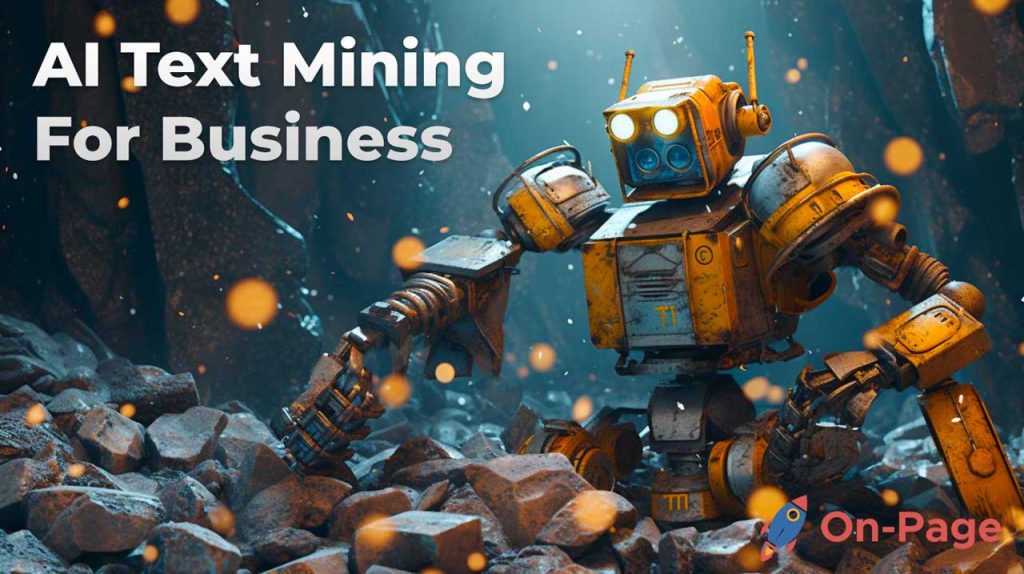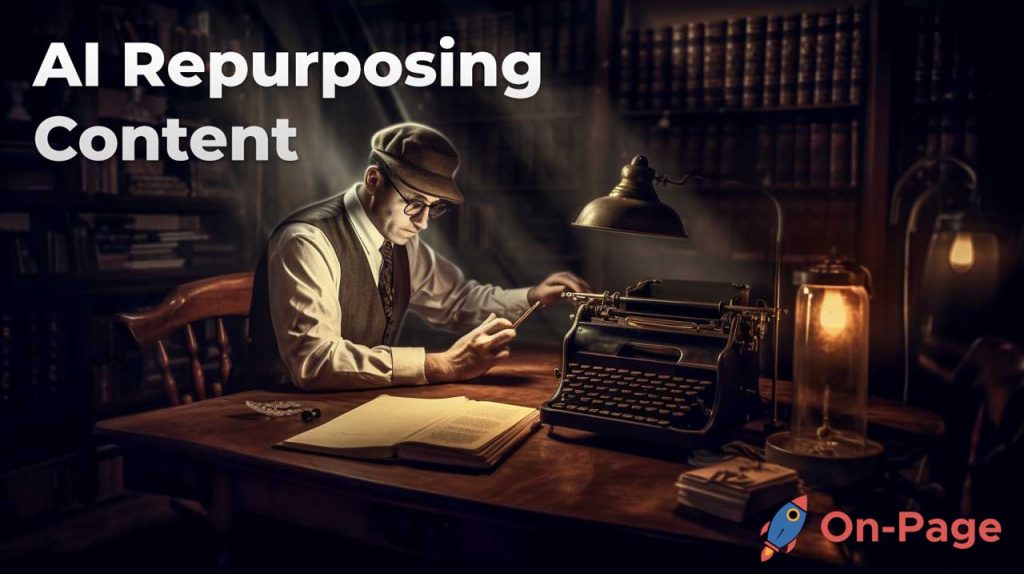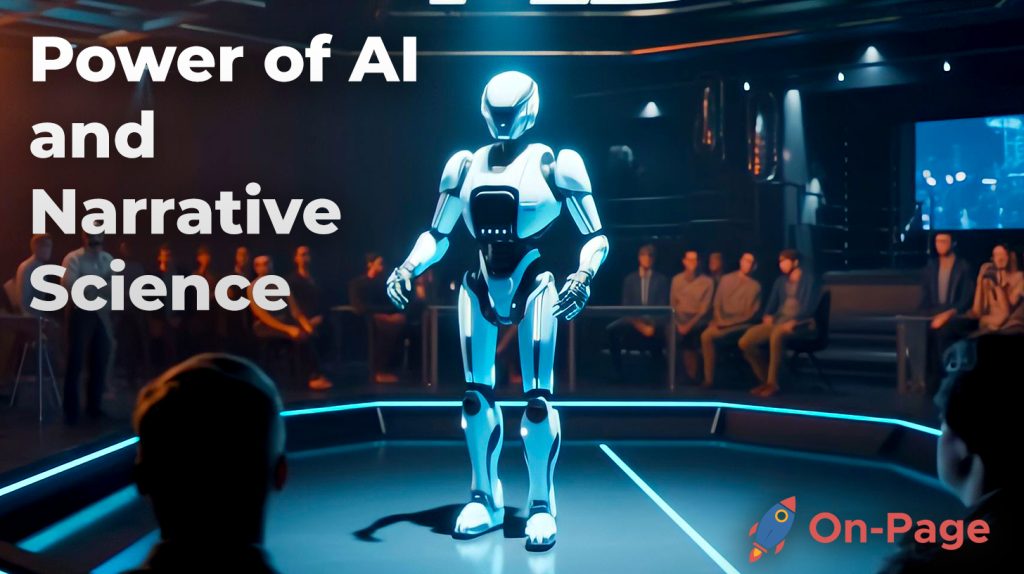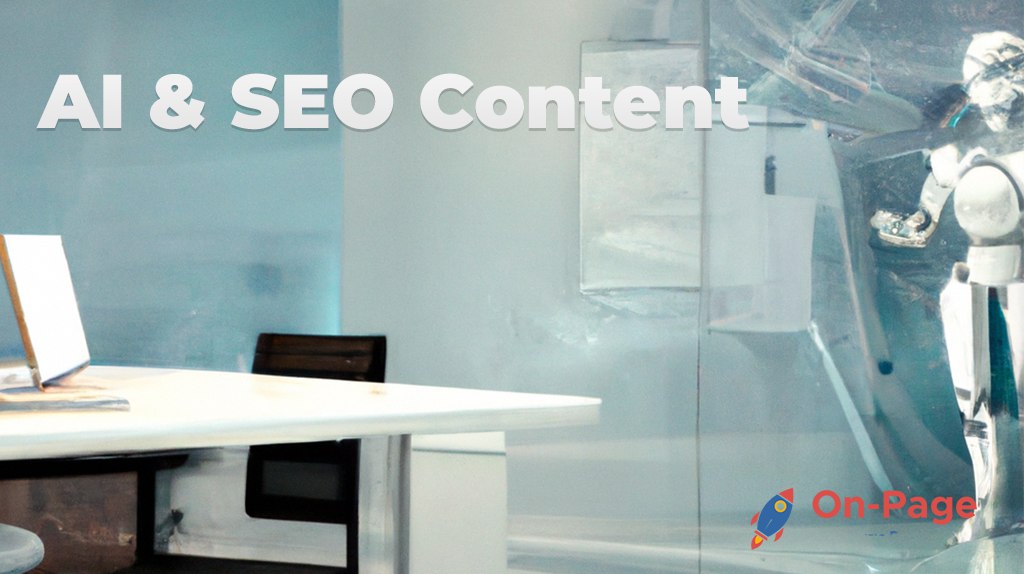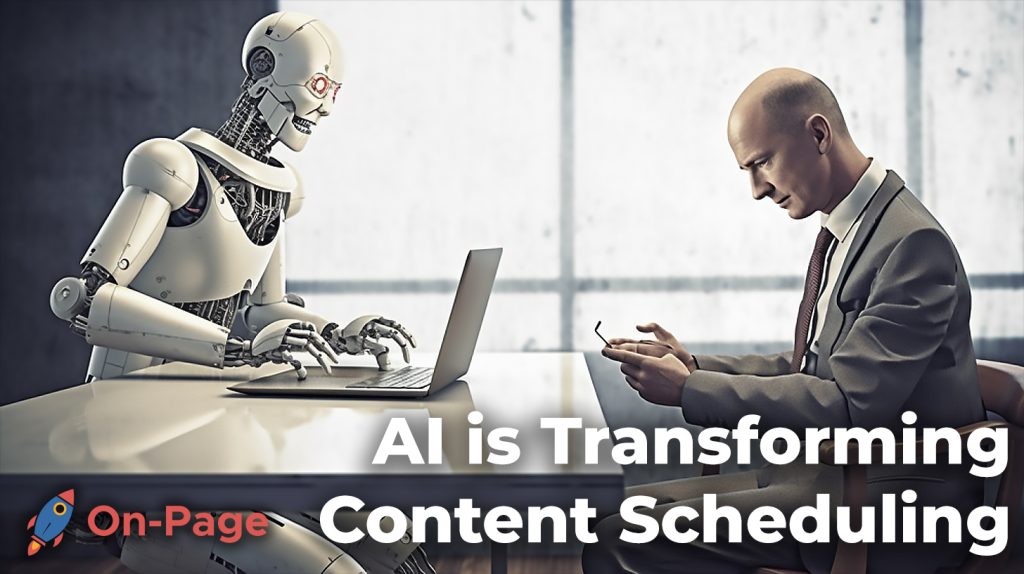
Picture yourself as a seasoned marathon runner, ready to face the daily content scheduling race. The adrenaline rushes through you as AI technology accelerates, and you find yourself a part of the most thrilling automation revolution the digital world has ever witnessed. Say goodbye to mundane tasks and let On-Page.ai sprint alongside you in this exhilarating journey, where artificial intelligence takes care of your content scheduling, leaving you victorious at the finish line every time! Dive in to explore how AI is transforming the realm of content planning and execution, rewriting the rules, and creating endless possibilities for every digital marketer striving to stay ahead of the game. Let’s get ready to leave your competition in the dust!
AI-powered tools can help businesses streamline their content scheduling process, enabling them to plan and publish content in a more effective and timely manner. By leveraging AI technology, businesses can optimize their content for maximum engagement and reach their target audience more effectively. AI scheduling assistants can recognize patterns, make decisions, and learn from experience over time resulting in more personalized and tailored results for users. It is important to evaluate AI scheduling assistants based on factors like integration options, true AI features, insights and tips, and innovative appointment scheduling features.
Understanding AI in Content Scheduling
Artificial Intelligence (AI) has revolutionized the way content scheduling is carried out. It doesn’t just offer assistance in streamlining day-to-day tasks; it also provides insights that can inform and improve long-term strategy.
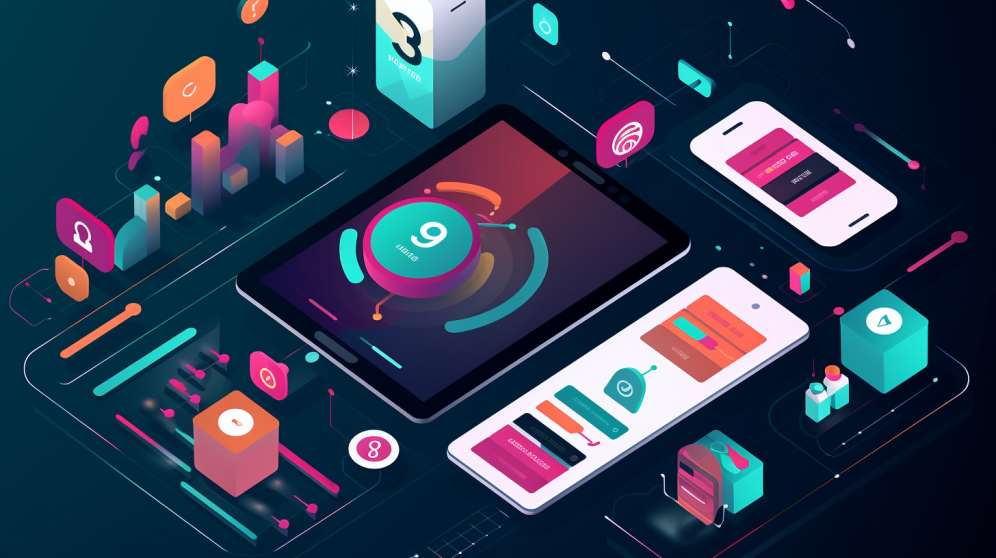
As an energetic marketer seeking to optimize your content scheduling, you’re undoubtedly familiar with how algorithms help automate certain tasks on social media platforms such as Twitter or Instagram. However, what you may not know is that AI-powered tools can take things to a whole new level.
For instance, while scheduling requires defining when to publish a post and what kind of audience to target, AI solutions can go a step further by learning from the engagement patterns of your audience. These solutions can recommend optimal posting times or the type of content that would resonate more effectively with a specific user group.
As such, machine learning, which derives pattern recognition methods from large amounts of data, becomes crucial. Instead of simply following predetermined algorithms, AI learns from history and adapts accordingly, resulting in higher accuracies than traditional techniques. In other words, AI breaks down big data into digestible chunks and transforms them into actionable strategies for enhancing your brand’s image and scalability.
An AI-powered content editor goes well in conjunction with a content scheduler, especially if you require search engine-optimized content that your target audience will find useful and enjoyable. To maximize your content creation and management plan, waste no time and implement On-Page.ai for your business today.
Some might argue that these same results could be achieved through human intervention alone; however, given the sheer amount of data we’re dealing with today, human capabilities are no longer sufficient to carry out sophisticated analyses in real time.
To illustrate this point further: consider how mathematicians have used algorithms since time immemorial to solve complex mathematical equations. Nevertheless, at some stage, these calculations would become too cumbersome for humans to perform – opening up possibilities for machines to take over the analysis.
That said, let’s delve deeper into how algorithms form the backbone of AI-powered solutions like those offered by On-Page.ai.
- A 2020 study found that incorporating AI in content scheduling could lead to a 25% increase in productivity for marketers and social media managers.
- According to the Content Marketing Institute, utilizing AI in content planning and scheduling has the potential to increase audience engagement by up to 61% when compared to traditional manual methods.
- A survey conducted by Hootsuite revealed that businesses using AI-driven tools for content scheduling saw an average improvement of 37% in their overall social media reach and impressions.
From Algorithms to Machine Learning
As the demand for immediate analysis continues to grow, algorithms, which are sequences of calculations used to solve a particular problem or task, have become increasingly popular. They’re the reason we can get patterns from data and interact with machines that make operations fast and efficient.
However, despite their flexibility, algorithms have their limitations. They only work if inputs are similar to previous ones and do not account for changes in human behavior or market trends. That’s where machine learning comes in; it enhances the precision of scheduling by adapting to changing variables.
The technology uses training models based on large data sets by calculating probabilities, identifying trends, and extracting insights on a massive scale. It then applies these insights to new scenarios – without being explicitly programmed for them – resulting in highly accurate predictions that can inform content strategy.
For instance, say you’re preparing a product launch for a new phone model that’s taking place over different regions with various time zones. A “traditional” algorithm-based tool would require manual input of each region’s time zone difference before any scheduling could take place.
In contrast, an AI-powered solution like On-Page.ai would use historical engagement metrics from your audience data (which takes into consideration things like typical engagement times) together with trending topics across all social platforms and generate suggestions about the optimal time frames for rollout of each segment of the launch.
In essence, while the accuracy of actual predictions varies depending on the amount of data used for training, the decision-making process is more like that of a pilot flying an airplane than someone defining an equation: they’re both learning from their interactions with systems as new information emerges.
With this understanding of how algorithms and machine learning form integral parts of AI-powered solutions, let’s explore how AI Tools can be used for content automation.
AI Tools for Content Automation
The rise of AI-driven tools has transformed the content automation industry. Businesses are now able to automate a wide range of content creation processes, from generating blog posts to creating marketing emails. In this section, we’ll explore some of the key AI-powered tools and services that can help businesses streamline their content creation workflows.
One popular tool for automated content creation is On-Page.ai’s Stealth Writer. With just one click, this advanced AI-powered tool can generate high-quality articles that pass our AI detection standards. All you need to do is input your desired keyword or topic, and the tool will take care of the rest.
On-Page’s Auto-Optimize feature also automatically optimizes your content with relevant and important keywords, ensuring you get targeted traffic and a high website ranking. All done in just a click!
Another great example of an AI-powered content automation tool is Copy.ai. This platform uses natural language processing and machine learning algorithms to generate high-quality copy in a variety of formats, including blog posts, social media posts, and ads. Copy.ai’s mission is to make it easy for businesses to create exceptional content with minimal input required.
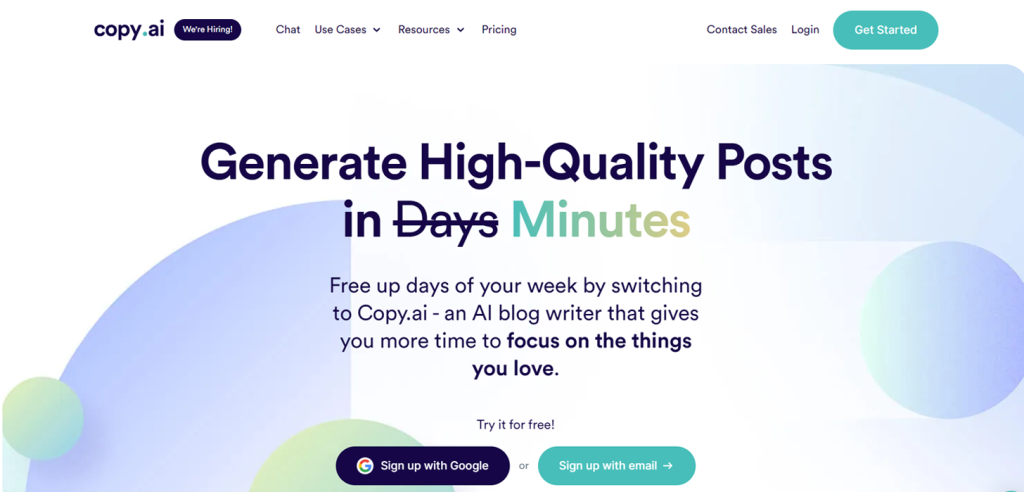
Some critics argue that relying on AI-powered tools for content automation could lead to a lack of creativity and originality in online content. Others believe that using these tools actually frees up creative space by taking care of mundane tasks like formatting and researching, allowing humans to focus on more challenging aspects of content creation.
Think of it like having an assistant who can take care of the monotonous parts of your job so you can focus on more complex tasks. It doesn’t mean you’re less creative or skilled – it just means you have more time and energy to put towards higher-level goals.
Overall, AI-powered content automation tools offer businesses an opportunity to create high-quality content faster and more efficiently than ever before. Of course, it’s important to keep in mind that these tools are not perfect, and there may be some instances where a human touch is still necessary. When used correctly, however, AI tools for content automation can be a game-changer for businesses looking to scale their content creation efforts.
Social Media Calendar Optimization
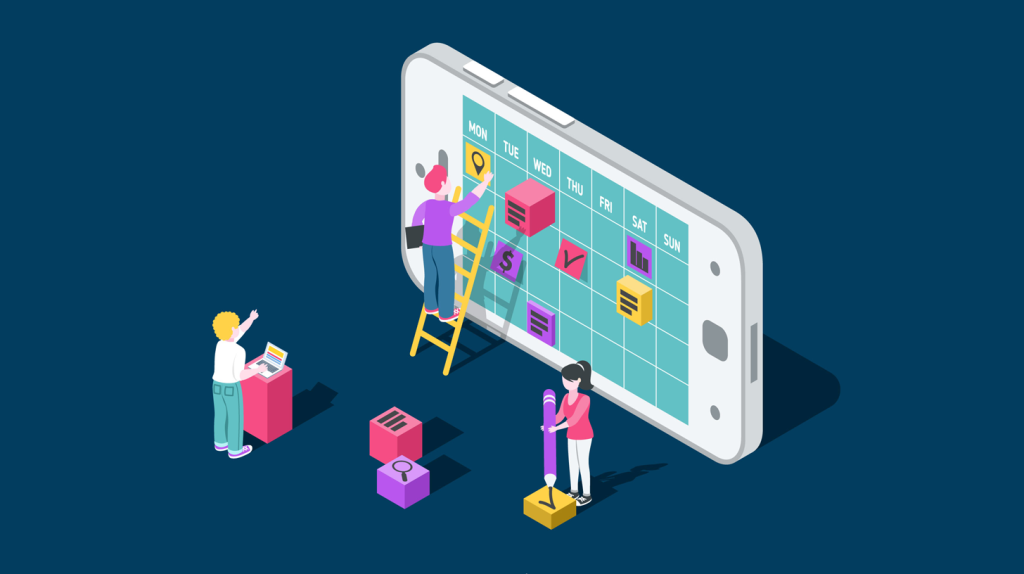
One of the most popular use cases for AI-powered tools in the content scheduling arena is social media calendar optimization. With so many platforms and users to keep track of, managing social media calendars can quickly become overwhelming for businesses of all sizes. In this section, we’ll explore how AI-powered tools can help streamline this process and maximize engagement on social media.
Buffer
Buffer’s AI Assistant is a great example of an effective tool for social media calendar optimization. This tool not only suggests post ideas but even writes posts for you, optimizing, shortening, or translating your post to speed up post publishing and scheduling. By taking advantage of machine learning algorithms, Buffer’s AI Assistant has learned what types of content perform best on which platforms at what times – allowing businesses to maximize engagement without wasting time on trial and error.
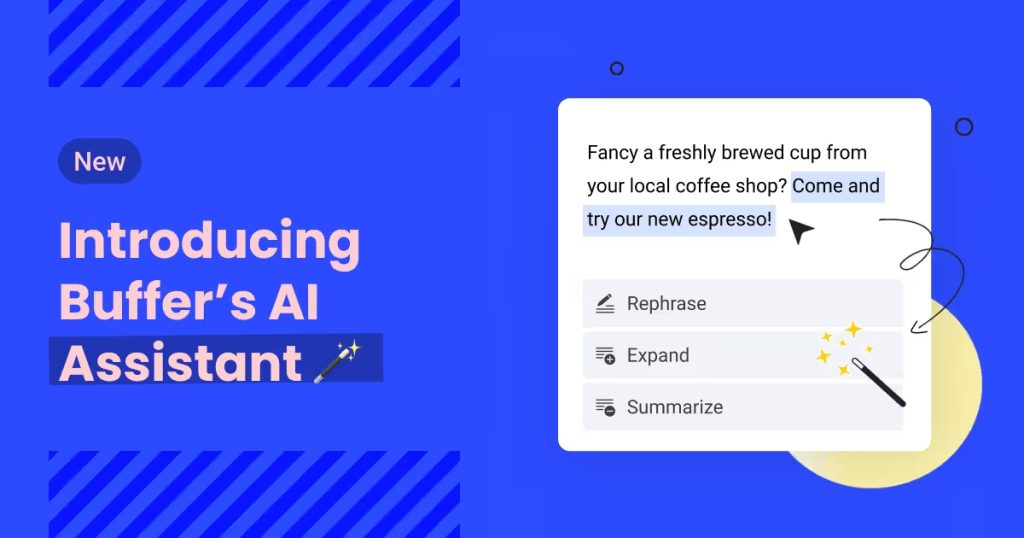
AgoraPulse
Another top contender when it comes to social media calendar optimization is AgoraPulse. This platform takes things one step further by offering detailed analytics and insights into how each post performs on different platforms, as well as personalized tips and recommendations for improvement. Additionally, AgoraPulse offers features like CRM integration and team collaboration tools that make it easy to manage multiple accounts across a variety of social media platforms.
One potential downside of relying too heavily on AI-powered tools for social media calendar optimization is the risk of becoming too formulaic or predictable in your content strategy. Some critics argue that over-reliance on these types of tools can lead to a lack of authenticity or spontaneity in online interactions with customers. It’s important to keep in mind that while these tools can be helpful, they shouldn’t replace the value of genuine human interaction and creativity.
Using an AI-powered tool to optimize your social media calendar is like having a digital assistant who can help you keep track of the important details and insights necessary to create a successful campaign. It doesn’t mean you’re not actively engaged or involved in the process – it just means you have an extra set of eyes and ears to help you stay on top of things.
In sum, AI-powered tools for social media calendar optimization can help businesses save time, streamline their content creation workflows, and maximize engagement with their target audience. As with any tool, however, it’s important to use them judiciously and remember that there’s no substitute for authentic human interaction when it comes to building strong online relationships with customers.
Personalized Content Generation
As content marketers, we know that creating new and engaging content consistently can be a real challenge. However, with the help of AI-powered tools, it has become much more manageable and effective for content scheduling. One of the features that make AI tools stand out is their ability to generate personalized content that resonates with specific audiences.
Personalization is all about creating targeted content that speaks directly to your audience’s interests, pain points, and experiences. For instance, if you’re targeting millennials who are interested in environmentally-friendly products, you can use AI technology to write articles about bio-degradable packaging materials or sustainable fashion. Using AI-powered tools saves time in researching data efficiently and aids in delivering personalized information.
This type of targeted content will likely perform better than writing broad topics since it provides relevant value to your readers. Plus, personalized content brings an additional benefit – building a loyal audience who trusts your brand and looks forward to engaging with your future content.
AI-powered tools like On-Page.ai’s Stealth Writer go beyond simple keyword optimization and provide users with credible insights into what topics resonate within their industry. The Stealth Writer generates unique articles and helps save time from researching topics by providing valuable insights, making it useful for businesses of any size, and streamlining their publishing schedules. With this tool in hand, you can quickly generate hundreds of blog posts without having to spend hours planning them yourself.
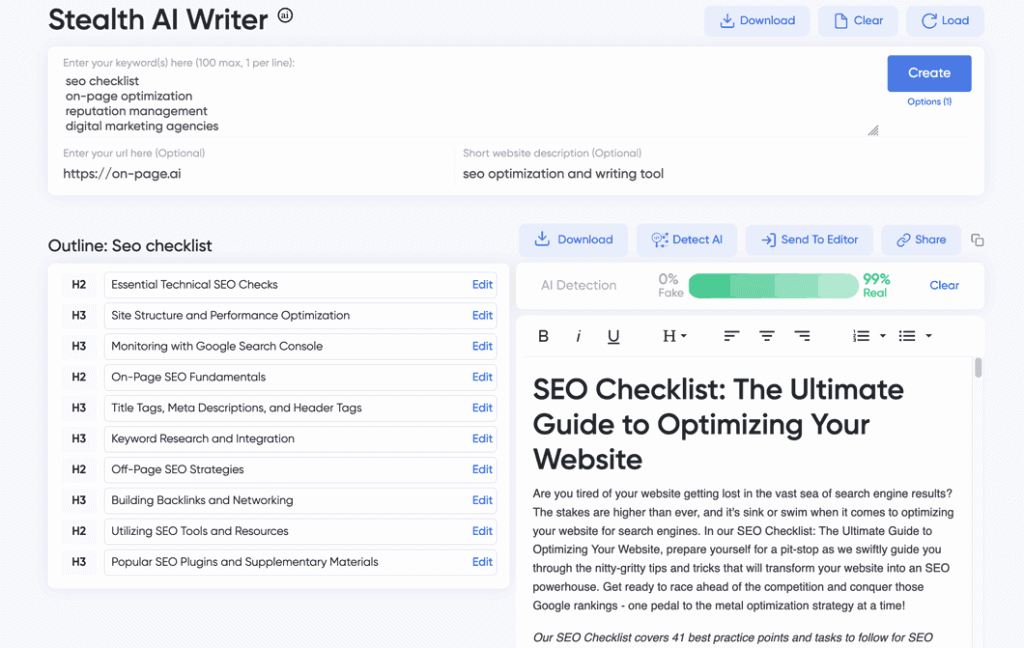
Moreover, AI-powered content generation also helps automate mundane tasks like image sourcing, formatting headlines, summarizing articles, and audio or video transcription for podcasts or webinars.
However, some critics may argue that generating personalized content through AI technology removes the human element from the creative process. But an AI’s goal isn’t replacing humans but complementing them while aiding them in generating content efficiently.
By utilizing these tools correctly, businesses can maximize efficiency allowing their editorial team to focus on creating high-level content that requires human creativity and personal touch. Lastly, by utilizing machine learning features, AI technology can generate content that gets increasingly personalized over time.
Now that we understand the importance of creating personalized content, let’s dive into how AI tools can help us improve engagement with our website visitors.
Improving Engagement with AI
One of the most significant benefits of using AI-powered tools for content scheduling is increased engagement. By automatically delivering personalized content to your readers, you are showing them that you care about their specific needs and preferences. Here are some ways in which AI tools can help increase engagement across various channels:
Through email marketing campaigns, businesses can take advantage of machine learning algorithms to predict what types of content their subscribers are most interested in reading or watching based on past behaviors, and preferences. For example, incorporating personalized subject lines or sending automated messages will encourage more opens and clicks rates than generic statements.
AI tools like Autopilot or Mailchimp bring together all aspects of data for a deeper understanding of customers’ interests and behaviors. By using these tools when planning outgoing newsletters or drip campaigns, brands could automate their email marketing strategy resulting in higher engagement rates.
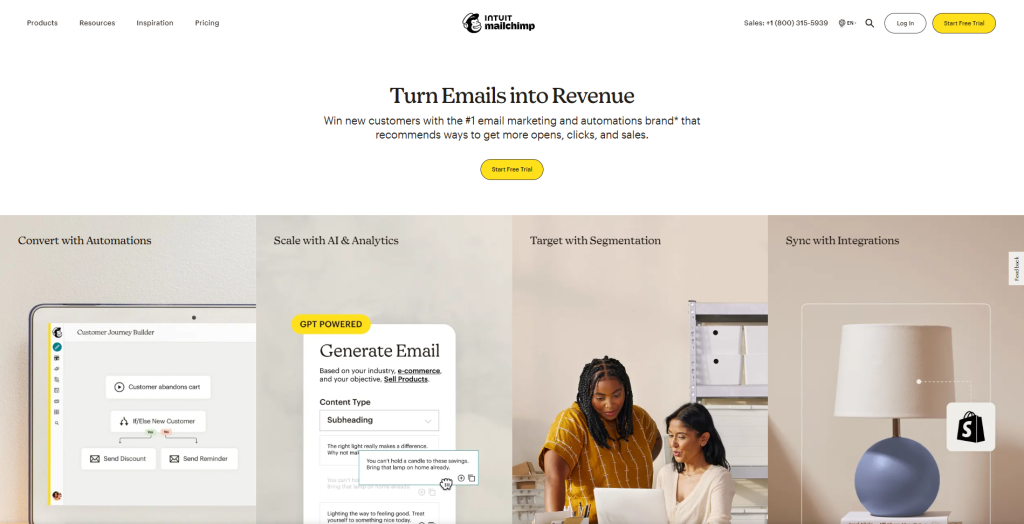
Similarly, social media managers can use AI-powered tools like Buffer’s AI Assistant to generate more targeted posts for their audience niche by targeting individual demographic subsets and offering optimized recommendations for emojis, hashtags, and times to post assists with streamlining brand voices across all platforms.
Meanwhile, the Stealth AI Writer by On-Page mines the entire web to understand your business niche or topic and writes educational and engaging articles. And if you have other content pieces, Stealth ReWriter can also recreate them into brand new, plagiarism-free articles so you can repurpose them for your content marketing strategy. Writing and rewriting, done and dusted in seconds!
While some people might argue that personalized content could disturb the delicate balance between brand personality and audience’s interest, it’s essential to remember that personalization is a challenging feat to achieve without help.
In fact, Engaging readers with personalized content while also preserving brand voice has become more manageable thanks to AI-powered algorithms that are only improving as time goes by, leading to better recommendations on how often to post, which platforms to emphasize or what type of content should be created among other factors.
- Using AI-powered tools for content scheduling can significantly increase engagement and deliver personalized content to readers. Businesses can take advantage of machine learning algorithms for email marketing campaigns by predicting subscribers’ interests and sending automated messages. Social media managers can use AI-powered tools like Buffer’s AI Assistant to generate targeted posts tailored to their audience niche. Content repurposing tools allow older content pieces to feel fresh again, giving them more reach through multiple channels. While some argue that personalized content might disturb the brand personality and audience’s interest balance, AI-powered algorithms make it easier to engage readers while preserving brand voice by providing better recommendations on content creation, posting frequency, and platform emphasis.
Adapting Your Strategy for AI-Assisted Scheduling

As AI is transforming content scheduling and automation, it’s important to adapt your strategy to take advantage of its benefits. It’s crucial to first understand that AI is not meant to replace human efforts but rather enhance them by simplifying tasks, increasing efficiency, and providing personalized insights.
To start with, you should evaluate your current scheduling process and determine which tasks or activities can be automated through AI. Aspects like topic research, keyword analysis, and even content creation can be streamlined using advanced AI tools. Implementing these features will allow you to focus on other pertinent matters such as content promotion and building relationships with your target audience.
When it comes to topic research and keyword analysis, the On-page optimization tool is such a game-changer. You can simply type your website and target keywords, then it will recommend relevant keywords and topics that you should add to your content plan to generate more site visits and conversions.
Using AI also means that businesses must take a more holistic approach to their content strategies. With smart algorithms evaluating everything from social media network demographics to keyword analytics, it will only make sense that the AI-assisted scheduling is part of a larger plan. Rather than focusing solely on one aspect, individual elements must be integrated smoothly and work together towards achieving common objectives.
Moreover, businesses should ensure that their use of AI does not come at the cost of abandoning what makes them unique – their voice and personality. While machines can help streamline the more mundane processes related to writing and publishing content, they cannot replace the creativity behind high-quality pieces.
For example, let’s say a business uses an AI-powered tool to generate multiple blogs on a given topic. The outputs may lack human touch or tone required for engagement, often leading to low traffic or engagement rates. Therefore businesses need to add value with a personal touch while keeping in mind the benefits of automation.
Additionally, adapting your strategy means allowing your audiences’ feedback to guide your decision-making process. Even with advanced tools for research and targeting algorithms available, it’s crucial to remember that content is primarily created for readers – connecting with their needs and interests.
Think of AI as a virtual assistant designed to assist any content creator or marketer achieve their goals better and faster. As with any technological advancement, there will always be room for fine-tuning and improvement over time. When maximized correctly, adjusting your strategy for this new era in content management can yield significant business benefits.
On-Page.ai offers a reliable solution for businesses looking to take their scheduling to new heights with automated technology. The platform’s advanced algorithms and personalized insights also provide a broader perspective on what’s trending in SEO – giving marketers an edge when developing high-quality optimized content strategies that resonate with their audiences.
So, adapting your strategy to AI-assisted scheduling is something that every content creator should consider. With the right approach, businesses can benefit from greater accuracy, efficiency, and insight into what their target audience wants. On-Page.ai content editor makes it even easier to achieve your goals while staying relevant in the competitive world of online marketing.
Ready to revolutionize your content creation and scheduling with the help of advanced AI? Sign up today and we’ll get you set up.

